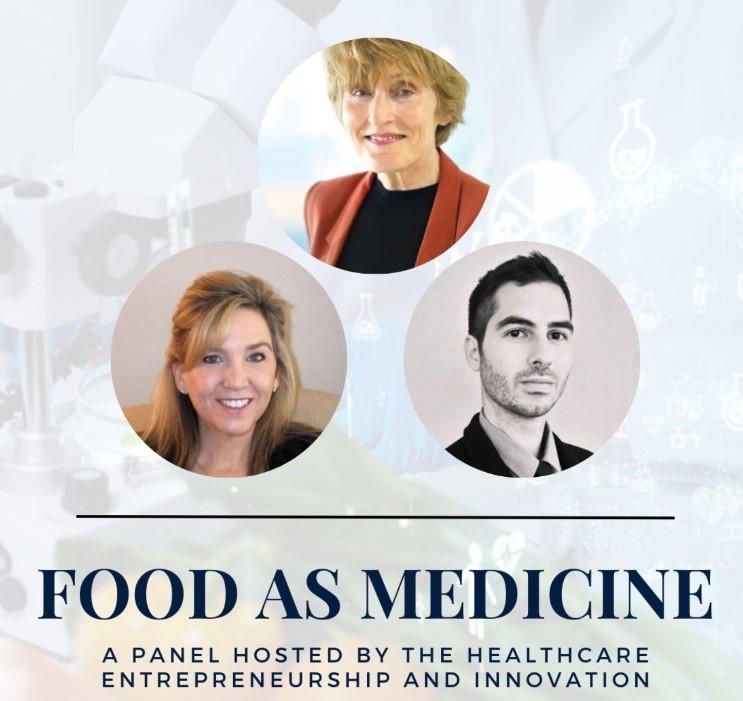Georgetown University’s McDonough School of Business’ (MSB) Healthcare Entrepreneurship & Innovation Initiative, an entrepreneurial program exploring innovation within the health and wellness space, hosted a webinar on the intersection of food technology, medicine and human health Nov. 1.
The webinar, titled “Food as Medicine: A Panel on Food and Healthcare Innovation”, featured three panelists who discussed their experiences in health care in relation to food. The panelists focused on recent innovations in the food world that improve the nutritional value of food and public health.
Laine Clark, innovation and entrepreneurship manager at the Good Food Institute, a nonprofit think tank that promotes food security and global health, discussed at the event how new food production techniques can yield crops of more nutrient-rich foods.
Clark, who also serves as an entrepreneur in residence at Georgetown, a program that provides mentorship to students interested in entrepreneurship, said she is excited to see how farmers can use natural or genetically modified crops to reduce monocropping, the practice of planting only one species in a plot of land that depletes soil nutrients.
“I’m really excited about seeing a lot of growth areas and novel crop inputs so that we can get away from these monocropping situations we’re in with soy and wheat,” Clark said at the event. “I think that’s what stands to unlock potentially more nutritious options for us.”
Panos Kostopoulos (GRD ’23), CEO and founder of Proxy Foods, said at the event that the food industry can support a healthier world by innovating the value chain, the many different components of the food growing process such as agricultural workers, crop choice and consumers. Kostopoulos said he hopes that his company, which uses AI to help food and beverage companies make their products more nutritious, can be part of this innovation.
“You have this value chain, and I think throughout the value chain we see innovative companies that are trying to change the modus operandi,” Kostopoulos said at the event. “So we’re trying to give the toolbox to all these R&D scientists to make the transition.”
Ivica Labuda, director of the biotechnology program at Georgetown, said at the event that she is interested in addressing human health through personalized nutrition. Labuda said new advances in at-home microbiome profiling, which allows individuals to analyze the bacteria in their gut, could help people eat in a way that benefits their own health needs.
“There is a company called ZOE Personalized Nutrition, which is doing a prediction based on an in-home test that you can purchase, and you can predict the insights basically to your health,” Labuda said. “There are some biomarkers they’re following, and you can establish your patterns, and you can also even check your gut microbiome.”
Kostopoulos said he agreed with Labuda’s emphasis on the power of personalized nutrition to improve human health and that personalized meals based on personalized data will be the future of healthy eating.
“I think we’re going to have more personalized meal options. I think this will be very interesting to start understanding and, if we did it correctly, and we have the right data, this could have an impact on the overall world,” Kostopolous said.

The panelists also answered questions about how consumers can take advantage of innovations in the food and nutrition sector to optimize their well-being. Clark said that the most important thing for customers to do is to thoroughly research what they are eating and buy the best products for their health needs.
“I think we just need to really look at food as something that is integral to our health and well-being and take the time to be somebody who really does a deep dive and understands what works and what doesn’t,” Clark said. “Don’t support the companies who are taking shortcuts that are ending up on our plates.”
Labuda said that although there have been many improvements in nutrition and food production, the future still holds many new possibilities for making food better for our health.
“I think that we are inching along, and we are getting better and better. Is it perfect? Probably not,” Labuda said. “But I think that with science, with more money, and more innovation, we will go forward to better food and hopefully for everybody.”








